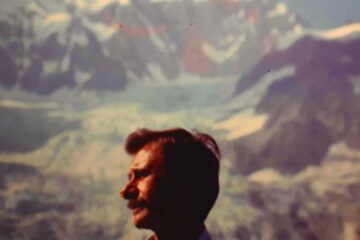Students are ideal users of Atlas because they can use a mean that is familiar for them (the web) to know the territory. The project Atlasfor School suggests to students to be users and PRODUCERS of Atlas. In fact, Atlasfor School teaches them how to use the software to create and organize researches, with the coordination of their teachers and the help of technicians of the Landscapefor Association.
The results of researches are legible on Atlasfor inside dedicated sectors, which can be used only by participants. If students’ researches are of common interest they will be published on Atlas were they could be reached by everyone.
Students become de facto editors of the Atlas and participate in this great cultural undertaking, acquiring, on the other hand, elements of a professional methodological approach for research on the territory in the historical-cultural field, for the use of the IT tool and the web, for the diffusion of the iconographic and cartographic documents, for the communicative and dissemination aspects in the development of the texts and their version in different languages.
This activity satisfies both the requirements of the class projects and those of experimentation of the School-Work Alternation, as per Law 107/2015, which can be variously balanced according to the programs of the institutes or departments; we have already experimented this type of service, with cycles of 80 hours for alternating school work in 6 classes of high schools in Turin. In addition, the MIUR has approved an experiment that will be conducted in the next few months in 4 schools in Turin, Nichelino and Chieri, where 8 classes of high school will produce materials to be included in Atlasfor to tell their own territory (this is the name of the project) and present it to others students.
The activity is carried out with a settled procedure:
1. It is decided between the Association and the school bodies on which aspects and areas of the
territory to concentrate the attention. In that field, training and accompanying tutorials enable students to collect documentary material, to referencing sources, to their sorting in the form of storytelling for images, to the provision of explanatory captions, to the translation into foreign languages, to the technical elaboration of images for placing on the web.
2. The project is articulated in detail, always in collaboration with the Landscapefor Association and school bodies, specifying in particular:
• the skills to be acquired, referred to the curriculum training objectives;
• operational aspects: places, themes, temporal development, duration, sequences;
• any special opportunities or needs for learning specific cases;
• the tasks, the times and the personnel involved (of the School and the Landscapefor
Association).
3. The teachers are identified as tutors with a short course to acquire the skills to manage the work of the students on Atlasfor.
4. Students are instructed with an initial course (8/10 hours, also online) of database use,
georeferencing and specific software of Landscapefor Atlas, and of writing methods for document
captions. Any in-depth analysis (for example, introduction to Territorial Information Systems,
management of multimedia contents, scans and processing of images, document archiving criteria) are carried out on a case by case basis, according to specific needs.
5. Students working in groups or individuals are activated, at school or at home, referring to local
libraries and other sources indicated by the teachers; they are assisted by a team of internal tutors
(teachers) and external (Landscapefor Association), which ensure the accompaniment and monitoring of the skills acquired, elaborating, in conclusion, a report on the progress of the training activity. Local libraries and, where possible, municipal administrations, are involved in establishing points for collecting documentary material not available on the network, to which students must be able to access for reproductions and insertion in Atlas.
6. Students are assisted by on-line interventions on the activities of the single group, indicating
corrections or solving difficulties with forms of remote assistance. Students can see the work of their classmates and intervene. Each intervention is recorded with the date and name of the operator; the elaborations developed by the group can be presented to be “published” in the Atlas, after validation of a scientific committee. In any case, the processing can be downloaded at any time in pdf formats.
7. We organize once or twice during the program a workshop for mutual presentation of the works,
with a comparison between the classes and illustration of the territory and of the areas investigated by each group (between different institutions of a territorial area).
8. The costs of activation are proportional to the number of students and services required, but in any case are attributable to the funds available for the training offer and for the school-work alternation, proportioning the commitments in time and expense on the basis of availability of each institution.
